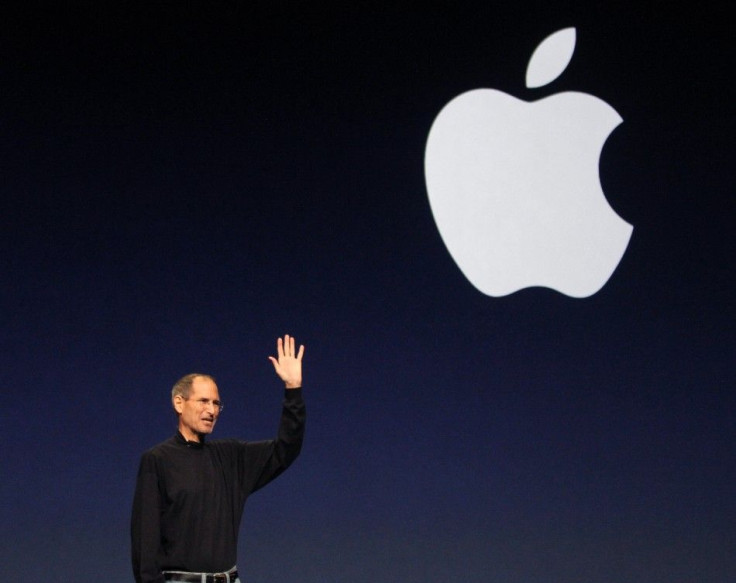What Does iCloud Mean to Apple?

Technology giant Apple is expected to unveil iCloud, the company's upcoming cloud services offering, at its annual Worldwide Developers Conference (WWDC). The conference will take place in San Francisco from June 6 to June 10.
There were media reports that California-based Apple has struck licensing deals with major music companies for its new iCloud service.
A Bloomberg Businessweek report also says the service will scan the user's entire iTunes library and allows a user to access the same songs from any Apple device. It also said the service could replace low-quality songs with better versions, automatically.
iCloud streaming is likely to have better ease of use relative to competitors.
Analysts say Apple may integrate Lala technology into iTunes that will allow it to automatically scan a user's entire (legal) music library and, without a need to physically upload it to the cloud as Apple has already copies of the music in its data centers. This will allow user web streaming access to its music library by simply turning on access to legally owned songs.
More importantly, we believe the service (iCloud) would make Apple's ecosystem stickier, UBS analyst Maynard Um wrote in a note to clients.
With more than 200 million iTunes accounts, we believe Apple has an opportunity to drive content and services revenue. However, we do not view this as the end game in and of itself but, rather, believe the creation of new services and content access will help it maintain its stickiness and help drive further Apple hardware sales, the analyst said.
In addition, data center uses should help drive revenue but analysts believe the end game is to drive further product halo effects. Market analysts believe further ecosystem functionality and ease of use is more to drive further product sales, differentiate from competitors, and make it easier for developers to develop to Apple's ecosystem.
The Lala Factor
When Apple bought Lala in Dec. 2009, analysts said Apple was building a data center for a service to provide seamless access and mobility of digital content across all its products including media-focused content of iTunes and user-generated content of MobileMe.
Lala offered a service that allowed users to match songs on their PCs to its online catalogue and play them anywhere via the Web through a browser. Most of the DRM-free songs were about 89 cents or 10 cents a song for Web-only.
We believe Apple is getting closer to offering such a service potentially this year alongside an iPhone 5 launch, pending deals with content providers, Um said
Meanwhile, Apple is believed to have already signed EMI Music and Warner Music Group and to be looking to add the other two large music labels, Universal Music Group and Sony Music Entertainment.
In addition, better integration of MobileMe functionality for pictures, videos, email, calendar, etc. is logical and would strengthen its ecosystem offerings and make Apple products stickier.
There are a number of large companies which offer content streaming services in the market. These companies have different approaches to the type of content they stream as well as the pricing structure/rules for such access. With regard to music, some players offer monthly subscription services which essentially lets users rent access to music month to month, while others combine the subscription with the ability to download and own a few songs each month.
Analyst Um sees two potential business models for Apple:
1. Combination of pay-to-own per song and pay-to-stream per song with no monthly subscription fees
2. Unlimited streaming subscription model with free/pay-to-own per song
The debate over a consumer's desired use case for music has been going on for years, as some believe music is the type of content that people prefer to own and add to their collection over time as opposed to rent access to monthly.
With respect to music Apple has a considerable advantage as iPods command nearly 75 percent of the MP3 player market. Apple can leverage its lead here and differentiate its service because the friction of moving one's content to other platforms or dealing with purchasing content elsewhere and moving it back to your Apple device is not desirable.
Financial Impact
Analysts say the majority of value created from such iCloud service would be in the continued improvement of the Apple ecosystem value proposition rather than driving material profits by itself.
Apple has consistently stated that it does not make large profits from selling content on its iTunes platform and generally runs the business at or just above break even.
Apple wants to sell hardware at high margins, and the company has been successful at doing so over the last decade in part because of the high value proposition it offers consumers with services like iTunes.
Significant enhancements to that ecosystem spur the sale of more hardware to consumers.
iCloud service could contribute about 10 cents per quarter in earnings per share to Apple assuming the service at a $15 a month, 10 percent of i200 million iTunes customers convert and Apple gets 10 percent operating margin, analyst Um noted.
Um has a buy rating and $510 price target on Apple stock.
© Copyright IBTimes 2024. All rights reserved.





















